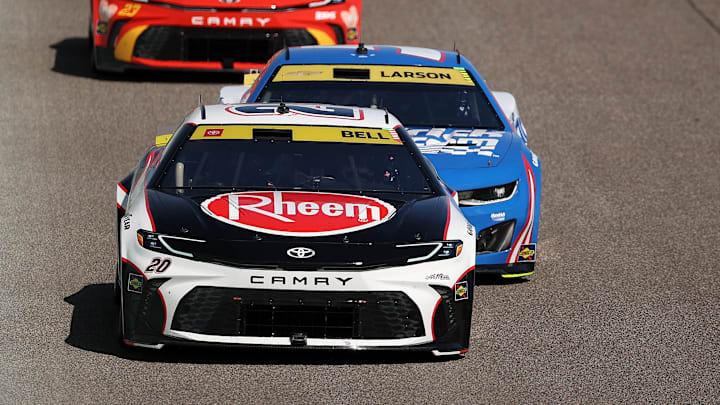After 22 seasons of playoffs, specifically 12 of the modern knockout Championship 4 format, NASCAR fans are ready for a change, and many are ready for the return of a 36-race, full-season championship format.
We thought that could not be more obvious than it was after Joey Logano won the 2024 championship, yet it did indeed become even more obvious during the 2025 playoffs.
A full-season format is reportedly one of a number of formats being considered by NASCAR for next year, when there is expected to be at least some form of change when it comes to how NASCAR crowns its champions across the three national series.
Others include the old 10-race "Chase" format as well as something similar to the modern format, but with a four-race championship, rather than a single-race championship.
However, there is one major problem with the full-season points format that fans are overlooking, and if such a format is implemented without proper safeguards, it would inevitably lead to further complaints – and for that reason, it might even be viewed as even more "gimmicky" than the playoffs.
Full-season NASCAR championship exposes two big flaws
The problem is, quite simply, how points are awarded. If NASCAR brings back a full-season points format, they would have to ditch the current points system for something that actually values not just consistency, but being consistently good.
Unlike what we see in other series, such as IndyCar and Formula 1, it's more valuable to run around staying out of trouble in NASCAR than it is to actually compete for wins.
Recording back-to-back 15th place finishes in the Cup Series pays out more points than recording a win and a DNF. I get the whole argument against a "win and in" playoff format, but winning races should still matter a lot more than it would under the modern points system if points end up being the only metric used to crown a champion.
A DNF should not be more detrimental than a win, or even a top five finish, is rewarding.
Hiding out in 12th is no way to win a title, yet if we look at the breakdown of 2025's results, that's exactly what it would do.
But within this problem is another deeper problem, and that problem is stage racing. I'm sure we've all heard about a million times that, despite the controversy at Phoenix Raceway, Kyle Larson "would have been champion anyway" because he scored the most total points across all 36 races.
That's all well and good, but if you take stage racing out of the equation and focus on actual race results, Larson wasn't even inside the top three. It was Christopher Bell won led all drivers in points based strictly on race results, and Chase Elliott was second, yet neither driver even made it to the Championship 4.
Stage racing was implemented in year number four of the modern playoff format back in 2017. It introduced a new way other than race wins to earn playoff points, meaning that it probably wouldn't have been implemented in the first place if NASCAR weren't using playoffs.
But if a full-season points format is used, NASCAR could literally decide a champion based on a driver running 10th instead of 11th at some random predetermined early-race – and otherwise inconsequential – lap during a random race in the middle of March.
Even if we ignore the completely gimmicky element of the planned caution periods that accompany stage racing, is that really what anybody wants?
On top of that, with stage racing, a race winner can technically end up outside of the top 10 in total points scored for that race, while the 16th place finisher can lead all drivers in points scored. Those numbers are even more ridiculous for the Coca-Cola 600, the only race in which stage points are paid out three times rather than just two; the P26 finisher can be P1 on the score sheet.
So sure, a NASCAR full-season points format works. But only if the points structure is changed, and even then, only if stage racing is abolished.
Because if NASCAR reverts back to determining its champions based on points and points alone over the course of a 36-race season, point totals better actually be reflective of a driver's race results and full body of work over the course of that 36-race season. Right now, that simply isn't the case.
